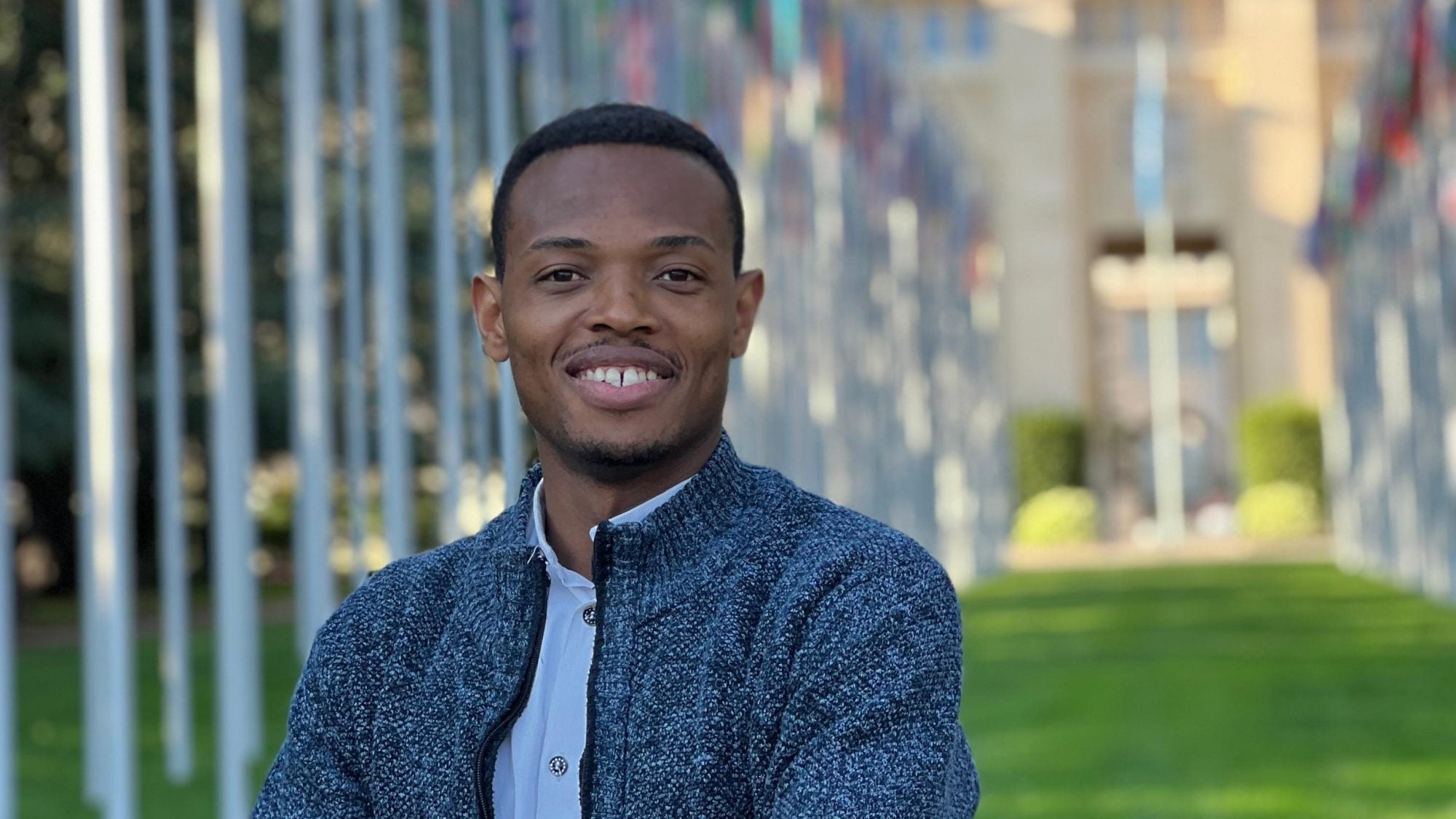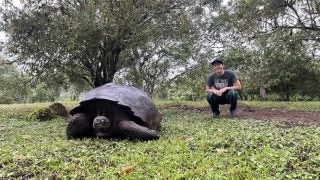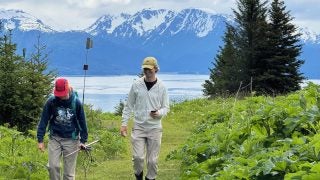This story is part of our summer storytelling series, which follows Hoyas’ adventures near and far.
Wisdom Obinna (G’29) has long admired the United Nations’ work for the public good.
The Ph.D. student in computer science hoped to work with the intergovernmental organization one day. This summer, he took one step toward that goal as part of the Graduate Study Programme at the U.N.’s office in Geneva.
Selected among over 1,250 applicants, Obinna joined 51 other graduate students from 41 countries in Switzerland for the two-week intensive seminar in international politics and diplomacy.
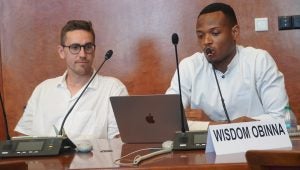
He spent much of that time in a group that formed recommendations on the ethical use of emerging technologies, including AI, quantum computing and brain-computer interfaces.
“It was truly an experience I really wanted to have,” Obinna said. “It was a win-win for me, in terms of knowledge gain, understanding how the United Nations works in person — not just from what I read — and being a part of shaping the future of technology.”
Before arriving in Switzerland this summer, he also explored ethical technology practices through the historical context of the Holocaust in Germany and Poland with a fellowship at FASPE, the Fellowships at Auschwitz for the Study of Professional Ethics.
Obinna, originally from Port Harcourt, Nigeria, already brings a global perspective to Georgetown in his doctoral research on how AI is affecting artists’ creative agency. His experiences collaborating with other international scholars this summer have added a new dimension to that work by urging him to consider the worldwide effects of rapid technological advancement across sectors.
“It’s been enriching to connect with people who I could work with in the future on projects from research to providing solutions to critical challenges facing our planet,” Obinna said.
Using History to Inform Tech’s Future
FASPE invites around 80 graduate students and early-career professionals to Germany and Poland each year to learn from historians and ethicists and grow their leadership skills.
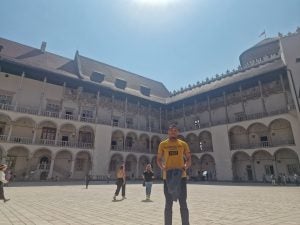
The fellowship offers an intensive seminar on the dismantling of professional ethics in Nazi-era Germany that contributed to the rise of the Nazi Party and the horrors of the Holocaust. Obinna’s Design & Technology group was tasked with applying those historic lessons to their responsibilities as modern technologists, creating systems that are “safe, smart and secure,” Obinna said.
“We are at the forefront of most of the challenges and issues around misinformation and labor,” he said. “We must understand that when we create tools in our spaces, we’re not just creating for ourselves; we’re creating for the larger society.”
Obinna’s team discussed how AI’s automation and content generation capabilities are reshaping global privacy, safety and security, a topic he has ample background in through his participation in Georgetown’s security-focused CS SecLab and collaboration with Assistant Professor Elissa Redmiles, his Ph.D. mentor.
Evaluating computer science advancements for the common good is also a core goal of Georgetown’s Tech & Society initiative, where Obinna is a Fritz Family Fellow.
“As technologists, we must choose the things we want to be a part of and speak up if we feel something should be done differently,” he said.
A Global Approach
Funding from the Fritz Family Fellowship helped get Obinna to Geneva, where working in U.N. conference rooms with “the brightest minds” of fellow students and international diplomats was a dream come true, Obinna said.
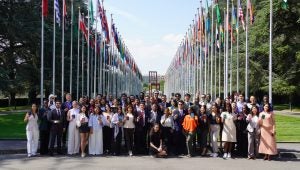
Miladin Bogetic, program coordinator for the U.N. Graduate Study Programme, described the summer session as a crash course on the U.N. and multilateralism, an international relations concept in which various countries work together to achieve a common goal.
“We expect that [students] leave Geneva with a much better understanding of the context in which the U.N. operates, [including its] aspirations and challenges, and also develop their own ideas on the way forward,” he wrote.
During this year’s session, Obinna’s cohort spent mornings meeting with U.N. officials within the organization’s various offices. In the afternoons, students debated global topics and wrote guidelines for the U.N. to address.
Obinna said his experiences studying intelligent systems like AI at Georgetown gave him an informed perspective on how to responsibly govern these advancements. Still, he spent more time learning than teaching.
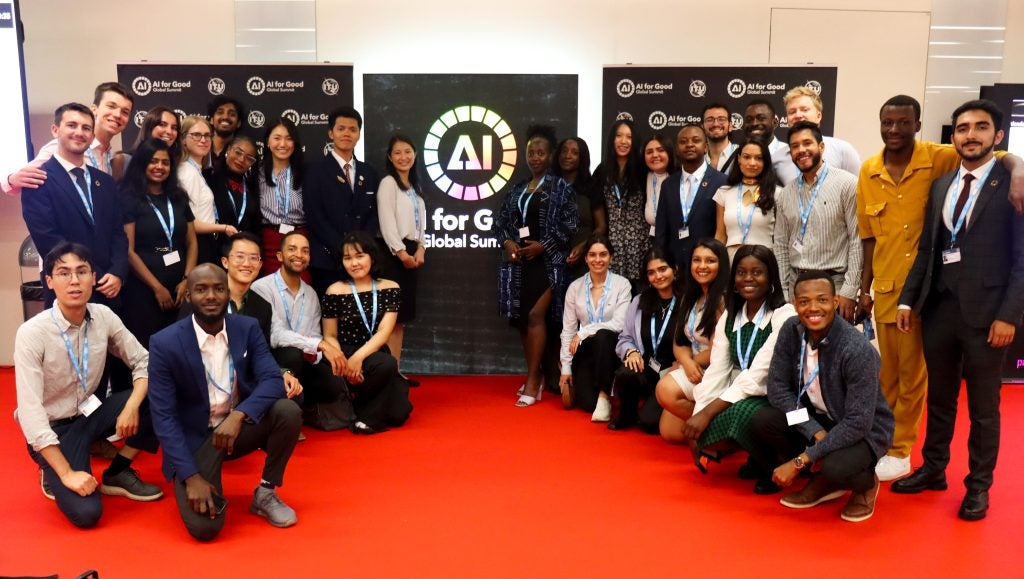
Exchanging ideas with students from different national, cultural and educational backgrounds encouraged Obinna to approach interdisciplinary collaboration in new ways. He left the program inspired not only to learn new languages but also to continue advocating for socially smart tech.
“You might not be the most powerful person in the room, but you can do what you can in the space where you find yourself to contribute to the greater good,” Obinna said. “And I’m really hoping to use my research as a tool to do that.”
